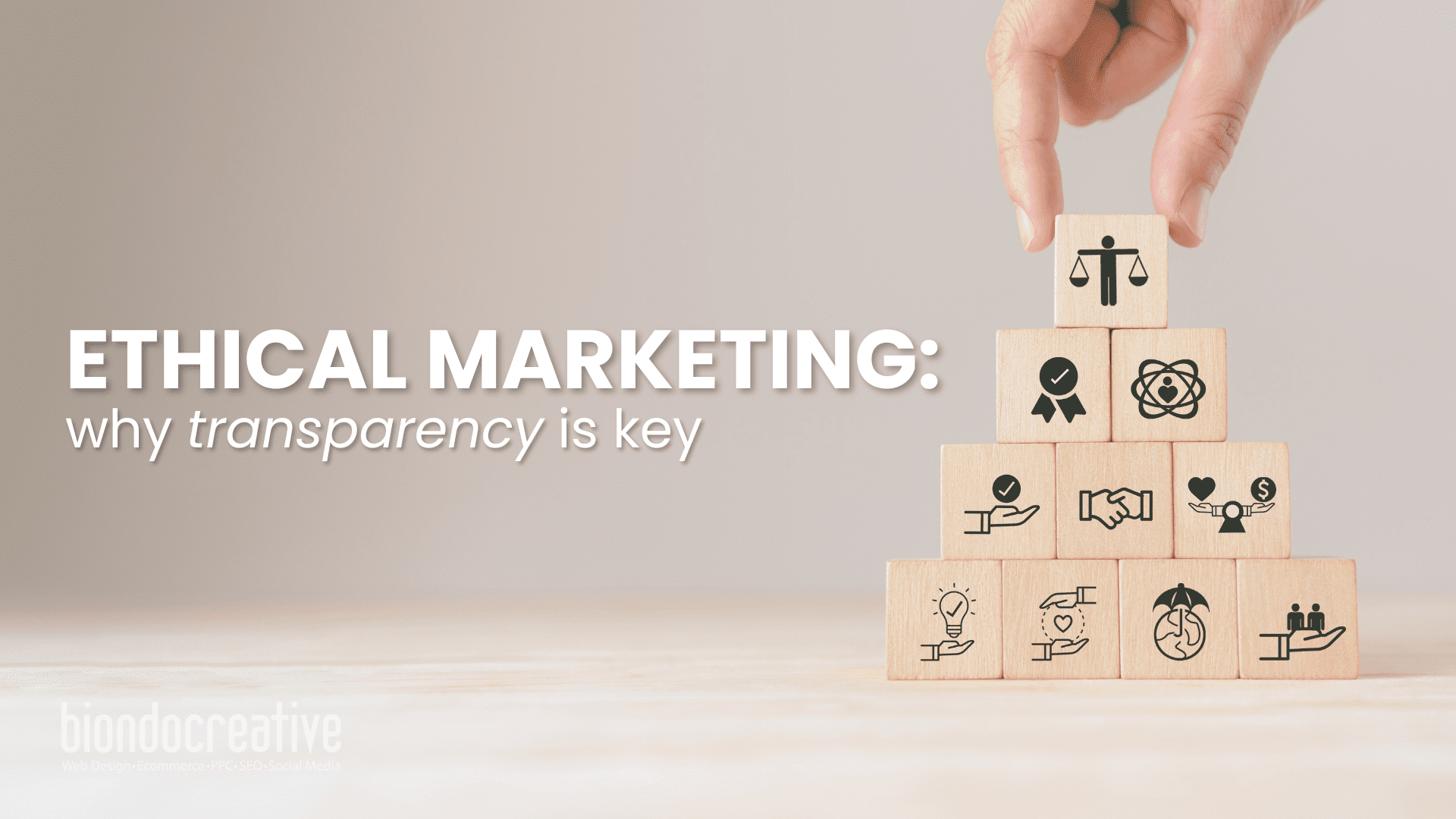In today’s digital landscape, consumers are more informed than ever before. They demand authenticity, honesty, and social responsibility from brands. Ethical marketing has emerged as a crucial strategy for companies looking to build trust and long-term relationships with their customers. But what exactly is ethical marketing, and why is transparency now a competitive advantage?
In this article, we’ll explore how ethical marketing is reshaping business strategies, why transparency matters, and how brands can integrate these principles to foster trust, loyalty, and sustainable growth.
What is Ethical Marketing?
Ethical marketing refers to promoting products and services in a way that is honest, fair, and socially responsible. It prioritizes consumer well-being, respects privacy, and ensures that marketing messages are truthful and not misleading.
Unlike traditional marketing, which often focuses on maximizing sales, ethical marketing considers the long-term impact of a company’s actions on its customers, employees, and the environment. This approach builds trust and loyalty, ultimately giving brands a competitive edge in the market.
Key Principles of Ethical Marketing:
- Honesty: No deceptive claims or exaggerated benefits.
- Transparency: Open communication about products, services, and business practices.
- Fairness: Pricing and promotions should be fair and non-exploitative.
- Social Responsibility: Companies should contribute positively to society.
- Sustainability: Ethical brands prioritize environmental responsibility.
Why Transparency is Now a Competitive Advantage
1. Consumers Demand Authenticity
Today’s consumers, especially Millennials and Gen Z, prioritize authenticity. They want to know where products come from, how they are made, and whether a company aligns with their values. Brands that are open about their processes, ingredients, and ethical practices are more likely to win customer trust.
Example: Patagonia, a brand known for its environmental activism, openly shares details about its supply chain, sustainability efforts, and even the environmental impact of its products. This level of transparency strengthens consumer trust and loyalty.
2. Builds Long-Term Customer Loyalty
Consumers are more likely to stay loyal to brands that operate ethically. When brands demonstrate that they genuinely care about ethical practices, customers feel good about supporting them. This emotional connection translates into repeat business and positive word-of-mouth marketing.
3. Enhances Brand Reputation
In the age of social media, any unethical practice can quickly become a PR disaster. Transparency helps brands maintain a positive reputation by avoiding misleading claims or questionable business practices.
Example: Ben & Jerry’s regularly updates consumers about its stance on social justice issues and business ethics. This transparency reinforces its brand reputation as a company that values integrity over profit.
4. Regulatory Compliance & Legal Protection
Governments worldwide are enforcing stricter regulations on advertising, data privacy, and ethical business practices. Companies that embrace transparency reduce the risk of fines, lawsuits, and reputational damage.
For instance, GDPR (General Data Protection Regulation) in Europe and the CCPA (California Consumer Privacy Act) have made data transparency a legal requirement. Brands that proactively adopt ethical marketing practices avoid legal pitfalls and stay ahead of compliance challenges.
5. Competitive Differentiation in Crowded Markets
With thousands of brands competing for attention, transparency can set a company apart. Ethical marketing helps brands differentiate themselves from competitors that prioritize short-term gains over consumer trust.
Example: Everlane, a fashion brand, practices “Radical Transparency” by breaking down costs and showing customers how much it actually costs to make their clothes. This openness attracts conscious consumers and differentiates Everlane from traditional fast fashion brands.
How to Implement Ethical Marketing & Transparency in Your Brand
1. Be Honest in Advertising
- Avoid exaggerated claims about product benefits.
- Clearly state ingredients, pricing, and any potential risks.
- Ensure testimonials and reviews are genuine.
2. Share Your Business Practices
- Offer behind-the-scenes insights into your supply chain and operations.
- If using sustainable materials, share sourcing details.
- Publish reports on corporate social responsibility (CSR) efforts.
3. Prioritize Data Privacy & Consumer Protection
- Clearly explain how customer data is collected and used.
- Provide easy opt-out options for tracking and data sharing.
- Comply with data protection laws like GDPR and CCPA.
4. Address Customer Concerns Openly
- Respond to customer feedback promptly and honestly.
- If mistakes happen, own up to them and provide solutions.
- Engage in meaningful conversations on social media rather than deleting negative comments.
5. Support Social & Environmental Causes
- Partner with charities and social organizations.
- Implement sustainable packaging and ethical labor practices.
- Use marketing campaigns to spread awareness about important issues.
Conclusion: The Future of Ethical Marketing
As consumers continue to demand greater transparency and ethical responsibility, brands that embrace ethical marketing will thrive. Transparency is no longer just a moral obligation—it’s a competitive advantage that builds trust, loyalty, and long-term success.
Are you ready to integrate ethical marketing into your strategy? Start today by prioritizing transparency, building trust, and aligning your brand with values that matter. Visit our blog for expert insights on ethical marketing strategies.
